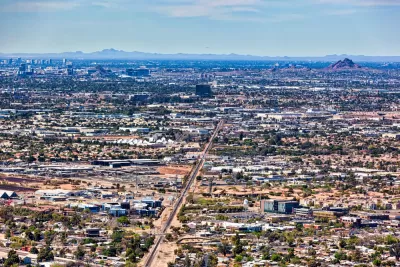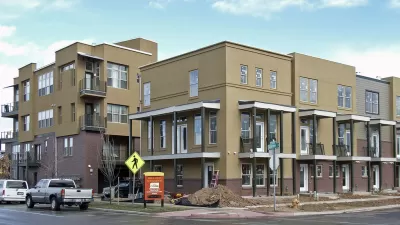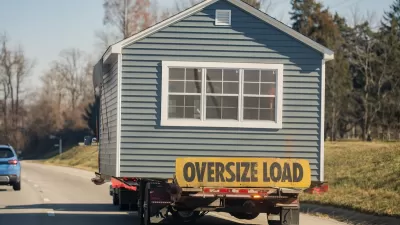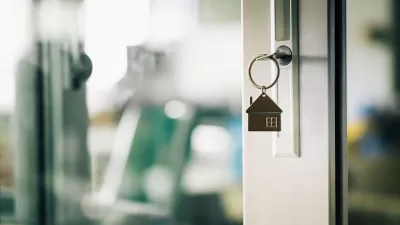Redlined for decades, south Phoenix is experiencing a resurgence that could push local residents even farther out as housing costs spike.

“Housing discrimination, including disastrous government-supported redlining is hurting south Phoenix neighborhoods more than 50 years after it was struck down as illegal and predatory,” write Catherine Reagor and Megan Taros.
According to the authors, south Phoenix neighborhoods redlined by federal government maps in the 1930s continue to see low homeownership rates among Black and Latino residents. “And by keeping the area’s residents from getting mortgages to buy homes for so long, the discriminatory policies kept many families from building the home equity that translates to savings and wealth.”
Now, the area is “seeing some of the biggest jumps in rents and home prices in the Valley,” making it impossible for low-income residents to afford homeownership there now. Like other urban communities around the country, south Phoenix also suffered the effects of freeway construction and a new airport that broke up neighborhoods and reduced mobility for local residents.
A report from ASU’s Morrison Institute for Public Policy documents the lasting effects of discriminatory policies. “Although some policies have tried to reverse these practices and racial integration has drastically increased, the past still weighs on the present housing landscape of Arizona, the report found.”
The source article details the findings of the report, including statistics and maps that show the correlation between historically redlined areas and current homeownership trends, as well as current efforts on the part of grassroots organizations and policymakers to reverse the effects of historically racist policies, even as property values in south Phoenix rise sharply.
FULL STORY: Institutionalized racism of the past': Discriminatory housing practices resound in south Phoenix today

Trump Administration Could Effectively End Housing Voucher Program
Federal officials are eyeing major cuts to the Section 8 program that helps millions of low-income households pay rent.

Planetizen Federal Action Tracker
A weekly monitor of how Trump’s orders and actions are impacting planners and planning in America.

Ken Jennings Launches Transit Web Series
The Jeopardy champ wants you to ride public transit.

California Invests Additional $5M in Electric School Buses
The state wants to electrify all of its school bus fleets by 2035.

Austin Launches $2M Homelessness Prevention Fund
A new grant program from the city’s Homeless Strategy Office will fund rental assistance and supportive services.

Alabama School Forestry Initiative Brings Trees to Schoolyards
Trees can improve physical and mental health for students and commnity members.
Urban Design for Planners 1: Software Tools
This six-course series explores essential urban design concepts using open source software and equips planners with the tools they need to participate fully in the urban design process.
Planning for Universal Design
Learn the tools for implementing Universal Design in planning regulations.
Ada County Highway District
Clanton & Associates, Inc.
Jessamine County Fiscal Court
Institute for Housing and Urban Development Studies (IHS)
City of Grandview
Harvard GSD Executive Education
Toledo-Lucas County Plan Commissions
Salt Lake City
NYU Wagner Graduate School of Public Service





























